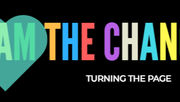To be prepared against surprise is to be trained. To be prepared for surprise is to be educated.
- Aug 26, 2020
- 6 min read
Updated: Sep 28, 2020
CONTINUING ON CORONA VIRUS AND PLASTIC POLLUTION
Hello Wednesday – Hump Day,
Last week Dan and I ordered on line from Kroger, like every week. The order most of the time comes within two hours after the shopper shops.

I usually receive a text, when they can not find the product I had ordered, which then I would have to find a substitute for. This shopper last week did not ask me, just replaced on his/her own. When asked, he/she stated that they know by my comments. When received at the door, Dan unpacked the bags and noticed a card.

It was a thank you card with a message inside and a coupon. For over 8 months, we have been on line ordering from Kroger and this is the first time we got the order right without any issues and a thank you card – SURPRISE.

There are lots of surprises in life, both good and bad. From engagements to on line orders, not everything in life can be expected. So, whether you get a good surprise or a bad surprise, just embrace it. Sometimes surprise catches us off guard, like this one from the shopper at Kroger. Planning is useful, but the most interesting times in life come from moments that catch you by surprise.

Expect nothing. Live frugally on surprise. Alice Walker
CONTINUING ON CORONA VIRUS AND PLASTIC POLLUTION, which is going to contribute to the all ready polluted situation that we are facing.

There are some facts you should know about disposable masks and plastic pollution. The fight against plastic pollution is being hit by the corona virus pandemic, as the use of disposable masks, gloves and other protective equipment soars, but UN agencies and partners insist that, if effective measures are put into place, the amount of plastics discarded every year can be significantly cut, or even eliminated.

THE FIRST ONE IS - Pollution driven by huge increase in mask sales. The promotion of mask wearing as a way to slow the spread of corona has led to an extraordinary increase in the production of disposable masks: the UN trade body, UNCTAD, estimates that global sales will total some $166 billion this year, up from around $800 million in 2019.
Recent media reports, showing videos and photos of divers picking up masks and gloves, littering the waters around the French Riviera, were a wake-up call for many, refocusing minds on the plastic pollution issue, and a reminder that politicians, leaders and individuals need to address the problem of plastic pollution.
If historical data is a reliable indicator, it can be expected that around 75 per cent of the used masks, as well as other pandemic-related waste, will end up in landfills, or floating in the seas. Aside from the environmental damage, the financial cost, in areas such as tourism and fisheries, is estimated by the UN Environment Programme (UNEP) at around $40 billion.
YOUR OWN VOICE
Good morning 🌞 Wednesday 🌻 your confidence in your own voice will carry Into all area's of your life 🤗 go out today and enjoy life.
The UN Environment Programme (UNEP) has warned that, if the large increase in medical waste, much of it made from environmentally harmful single-use plastics, is not managed soundly, uncontrolled dumping could result.
The potential consequences, says UNEP, which has produced a series of fact-sheets on the subject, include public health risks from infected used masks, and the open burning or uncontrolled incineration of masks, leading to the release of toxins in the environment, and to secondary transmission of diseases to humans.

Because of fears of these potential secondary impacts on health and the environment, UNEP is urging governments to treat the management of waste, including medical and hazardous waste, as an essential public service. The agency argues that the safe handling, and final disposal of this waste is a vital element in an effective emergency response.
“Plastic pollution was already one of the greatest threats to our planet before the corona-virus outbreak,” says Pamela Coke-Hamilton, UNCTAD’s director of international trade. “The sudden boom in the daily use of certain products to keep people safe and stop the disease is making things much worse.”

SECOND ONE IS - Existing solutions could cut plastics by 80 per cent. However, this state of affairs can be changed for the better, as shown by a recent, wide-ranging, report on plastic waste published by The Pew Charitable Trusts, and sustainability thinktank Systemiq.
The study, “Breaking the Plastic Wave: A Comprehensive Assessment of Pathways Towards Stopping Ocean Plastic Pollution”, which was endorsed by Inger Andersen, head of the UN environment agency UNEP, forecasts that, if no action is taken, the amount of plastics dumped into the ocean will triple by 2040, from 11 to 29 million tons per year.
But around 80 per cent of plastic pollution could be eliminated over this same period, simply by replacing inadequate regulation, changing business models and introducing incentives leading to the reduced production of plastics. Other recommended measures include designing products and packaging that can be more easily recycled, and expanding waste collection, particularly in lower income countries.

THIRD ONE IS - Global cooperation is essential. In its July analysis of plastics, sustainability and development, UNCTAD came to the conclusion that global trade policies also have an important role to play in reducing pollution.
Many countries have introduced regulations that mention plastics over the last decade, an indicator of growing concern surrounding the issue, but, the UNCTAD analysis points out, for trade policies to be truly effective, coordinated, global rules are needed.
“The way countries have been using trade policy to fight plastic pollution has mostly been uncoordinated, which limits the effectiveness of their efforts, says Ms. Coke-Hamilton. “There are limits to what any country can achieve on its own.”

FOURTH ONE IS - Promote planet and job-friendly alternatives. Whilst
implementing these measures would make a huge dent in plastic pollution between now and 2040, the Pew/ Systemiq report acknowledges that, even in its best-case scenario, five million metric tons of plastics would still be leaking into the ocean every year.
A dramatic increase in innovation and investment, leading to technological advances, the report’s study’s authors conclude, would be necessary to deal comprehensively with the problem.
Furthermore, UNCTAD is urging governments to promote non-toxic, biodegradable or easily recyclable alternatives, such as natural fibers, rice husk, and natural rubber. These products would be more environmentally-friendly and, as developing countries are key suppliers of many plastic substitutes, could provide the added benefit of providing new jobs. Bangladesh, for example, is the world’s leading supplier of jute exports, whilst, between them, Thailand and Côte d’Ivoire account for the bulk of natural rubber exports.

“There’s no single solution to ocean plastic pollution, but through rapid and concerted action we can break the plastic wave,” said Tom Dillon, Pew’s vice president for environment. As the organization’s report shows, “we can invest in a future of reduced waste, better health outcomes, greater job creation, and a cleaner and more resilient environment for both people and nature”.

RAISIN DOUBLE DECKER FRENCH TOAST
Only two slices of raisin 🍞 bread cut in fours. Stuck together in pan by threes.
INGREDIENTS: raisin bread, olive oil, cinnamon, eggs, organic berry jam, apples, agave.

DIRECTIONS:
1. Cut the raisin bread in fours
2. Add in a bowel about four eggs with some cinnamon, then scrabble until mixed.
3. Next put some olive oil in a pan and heat up.
4. As this is being done, cut apples in pieces and boil in water, until the apples are soft.
5. Drain some water out and then add cinnamon and agave; mix and cook until saluted together.
6. Then dip the raisin bread in the egg mix on both sides and place in the pan with the olive oil in threes close together.
7. Flip until both sides are golden brown. Continue until all the pieces are fried on both sides.
8. Now, ready to put on dish.
9. Place the three pieces that are stick together on dish first.
10. Add some apples sauce on top and then layer with another three pieces on top, repeat and add the apple sauce.
11. The final step is adding the berry jam to top of the fresh toast.
Enjoy - Bon Appetite

Until Tomorrow, would you like to know your future? If your answer is yes, think again. Not knowing is the greatest life motivator. So, enjoy, endure, survive each moment as it comes to you in its proper sequence, a surprise.




















Comments